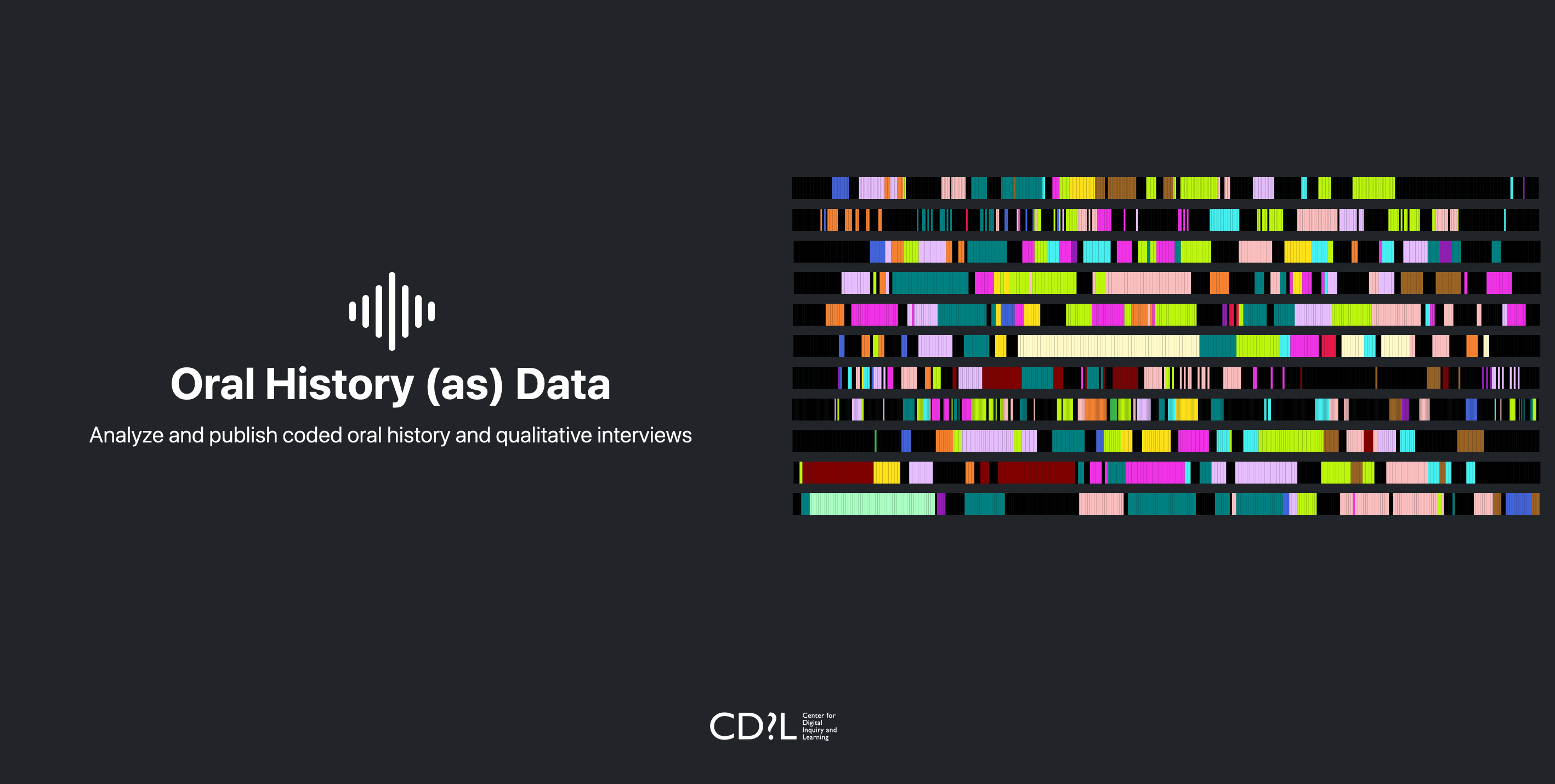Oral History as Data Docs
Oral History as Data (OHD) is a powerful tool for researchers, archivists, and oral history practitioners to prepare, publish, and analyze interview transcripts.

Who Should Use This Tool?
- Oral historians looking to make their interviews accessible and analyzable
- Qualitative researchers working with interview transcripts
- Digital humanities scholars exploring textual analysis of primary sources
- Archivists seeking to publish and preserve oral history collections
- Community historians documenting local knowledge and experiences
Features
- CSV-driven workflow: Manage all your interviews through a simple spreadsheet
- Flexible coding system: Apply and visualize your own analytical codes
- Responsive design: Works on mobile and desktop devices
- Media integration: Connect transcripts with audio/video sources
- Open source: Free to use and adapt to your needs
About Oral History as Data
Oral History as Data was first built in 2018, coming out of work at the University of Idaho Library’s Center for Digital Inquiry and Learning (CD?L). The framework served as the foundation for several digital humanities projects, including Voices of Gay Rodeo, Idaho Queered, and CTRL+Shift.
Devin Becker (@dcnb) is the primary developer for this project.
The project is closely related to the CollectionBuilder project, and the current iteration was built on top of a CollectionBuilder-CSV template.
Getting Started
Whether you’re working with a single interview or managing a large collection, this guide will walk you through the complete workflow from transcript preparation to final publication. The documentation is organized into logical sections following the research process.
Contents
- Overview / Quick Start
- Prepare Your Content
- Setup Your Site
- Publishing Your Site
- Tutorials
- Troubleshooting Guide
- Examples
- Resources for Further Learning
- Accessibility
- Glossary
Credits
Citation:
"OHD (Oral History as Data) Docs",
dcnb,
2023,
https://oralhistoryasdata.github.io/docs/
Content: CC BY-SA 2023 dcnb - Source Code.
Theme: lesson-template by Learn-Static is built using Jekyll on GitHub Pages. The site is styled using Bootstrap.